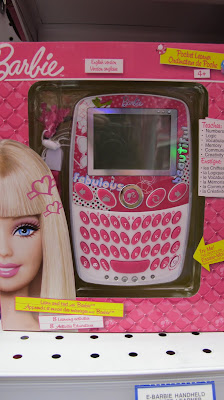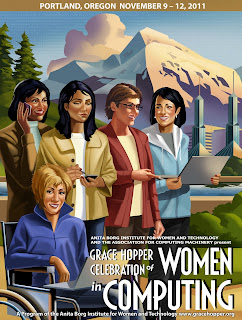This Thursday the girls at Girl Power 3.0 took a break from our studies...or did we? We attended one of our previous survey participants' events - Pecha Kucha Nights. This presentation format means 10 people present 20 slides and speak about each one for 20 seconds. This phenomenon, which is Japanese for 'chit chat' has spread throughout the world. Pecha Kucha night happens every two months in Victoria. This months theme was Music, so of course we were on board. Perhaps it might relate to our project, or provide some inspiration for us to commence our musical pursuits! This is where we met Gabrielle Odowichuk. Her presentation really stood out for us for two reasons: one, it was phenomenal!!! She is doing some really progressive stuff at her MISTIC lab at UVic involving computer science and music. Secondly, she was one of very few girls presenting, hmm....We were so happy to have met her, and we wanted you to hear her story right from the source. This is her interview with us here:
Girl Power 3.0:Please tell us your relationship with technology. For example, what field are you in? or How do you use technology in your spare time?
I’m an masters’ student in electrical engineering. I use technology enthusiastically at work and in my spare time.
GP3: If you have a good relationship with technology, how did you forge this? What experiences provided you with the tools to feel confident using technology?
I think I’ve always been good with technology… I was definitely always good at math. I remember back as far elementary school the feeling I got from doing math… but I think it was more about feeling like I was good at something that made me love it so much.
Also, I think my strong intelligent mother gave me the mindset that these sort of traits were a good thing.
GP3: What barriers did you face,if any, due to your gender or gender stereotypes?
I somehow brainwashed for a couple years in high school, and had actually convinced myself that I wasn’t smart and I wasn’t good at math and science. In grade eleven I didn’t even do well in my science classes!
I think the issue was this stereotype that blond girls … or girls in general… aren’t supposed to be smart. More specifically, that being smart isn’t pretty.
GP3: How, if at all, is technology tied into your identity? ie. Identity production...
I don’t think I would do this kind of work if I didn’t get so much pleasure out of telling people about it. Very much tied into my identity… and I like it when people are pleasantly surprised. “Oh, good for youuuuu”, is the most common response and it’s kinda awkward sometimes.
Where it’s the best is with the guys I work with – I like working with them a lot and I’m really popular cause they don’t know many other girls. On top of that, across the board they respect me for my work. I think I’ve earned that respect and it’s a good feeling.
GP3: What, in you opinion, prevent girls from accessing or feeling confident using/producing technology?
It’s like, if you decide you’re not going to be good at something, you won’t be good at it.
I think some girls don’t want to be good at this stuff, and if they really don’t want to be good at it that’s ok.
If the reason they don’t want to be good at is because they’re worried they won’t be able to get a date, that’s bad. Though maybe sometimes accurate :P
GP3: What message would you give to girls today about pursuing technology or computer based fields?
It’s almost never going to work right away, but there is always an answer to your question. Computer science and technology involves many hours of beating your head against a wall before you figure things out. Don’t give up
Thank you so much for sharing your experiences with us Gabrielle! As three Women's Studies majors initially intimidated by technology, it is so nice to have someone from the inside of the industry, and more importantly from our own school to speak to us. We appreciate so much the application of what you produce to your interpersonal relationships. You are a local resource and tangible motivation to us! Please keep us updated with your influential, ground breaking work!























